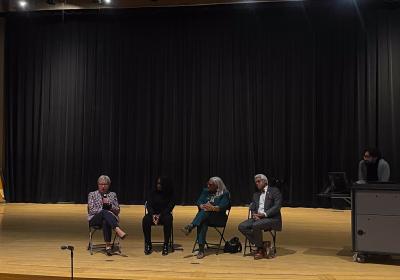CSU announces $900K consulting contract with EY-Parthenon
The focus of the December faculty senate meeting at Cleveland State University, Dec. 6, was the cost of bringing in outside consultants to help CSU stabilize its finances, and Ohio Senate Bill 83, described as "worse" in its current version than the original, which was widely condemned by the state's public universities.
CSU President Laura Bloomberg, Ph.D., provided the faculty senate with details about the school’s consulting contract with EY-Parthenon, part of Ernst & Young. The $900,000 contract comes at a time when CSU is battling a budget deficit. The decision to bring in an outside consultant was in line with the recommendation of the Cleveland State board of trustees.
President Bloomberg said the contract with EY-Parthenon is part of Organizational Resilience and Financial Stability, CSU’s plan for investments into the university’s future and budgeting.
“We want an organizationally resilient institution that is financially stable,” Bloomberg said. “I understand that there may be questions about what we’re paying to do this at a time when we are looking at cutting costs, and I maintain firmly that this was a good thing to do.”
Bloomberg said other options were more expensive and that EY-Parthenon was providing its services at a discount. She also said that the university would not bear the brunt of the cost.
“We’re asking external partners to cover the cost of a $900,000 contract. EY really wanted to do this work with us and gave us a pretty substantial discount,” President Bloomberg said. “By comparison, we had proposals at upwards of $3 million.”
President Bloomberg said the university was exploring funding options including with support from outside partners and area foundations.
“Our argument to area foundations is it behoves all of us to have a strong, resilient and financially stable Cleveland State, so help us get this help,” President Bloomberg said.
Senate Bill 83
President Bloomberg also updated the community on Ohio Senate Bill 83, which the CSU faculty senate condemned with the bill’s initial introduction in April 2023.
The bill, which passed the State Senate in May, also passed in the House Higher Education Committee by an 8-7 vote earlier on Dec. 6. SB 83, which is now in its 11th edition, now heads to the State House.
“I’ve read every iteration of it, and arguably the 11th version is worse than the first because the retrenchment provisions essentially would allow faculty with or without tenure to be fired if student enrollment dropped by even one,” said John Plecnik, a professor in Cleveland State’s College of Law.
Jerry C. Cirino (R) sponsored the bill which educators across Ohio have condemned.
"This bill attacks academic freedom; it would suppress free speech in college classrooms and on college campuses, and we're deeply concerned about what this means for Ohio's economic development because without quality higher education, our economy is going to suffer,” said Sara Kilpatrick, executive director of the Ohio Conference of the American Association of University Professors.
Plecnik, who has testified against SB 83 in Columbus twice, also said that to his knowledge, there are no currently employed Ohio professors who have indicated or spoken in favor of the bill.
“I think we still have a chance to stop this bill,” Plecnik said. “It’s not over yet."
The next CSU Faculty Senate meeting is scheduled for Wednesday, Jan. 31, and is open to the public via Zoom.










